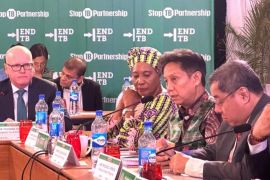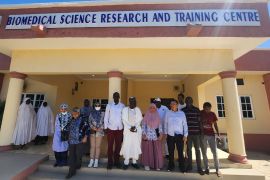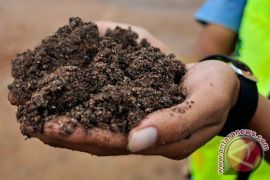Hours earlier, a leading politician was shot dead in the same city.
"The bomb was planted at the middle of the `mammy market` and at least 10 people have been killed and several others seriously injured from the explosion," said an army officer who prefered not to be named.
The so-called mammy market beer gardens are open air pubs and eateries found around police or military barracks, open to both security personnel and civilians.
Brigadier-General Jack Okechukwu Nwaogbo, the commander of a crack military unit deployed a week ago to curb the unrest in the area, confirmed the attack, saying they had so far recored eight deaths.
"There has been a bomb explosion at a market belonging to the police in Wulari area of the city," Nwaogbo told AFP on the phone from Maiduguri.
"So far we have eight dead and 13 injured. These are from those counted at the scene," he later said.
Umar Kaulaha, a resident in the area said he had heard a "loud bang followed by dark clouds of smoke from the beer garden".
"There was confusion and horrified cries as people scampered to safety. I saw three military vans leaving the neighbourhood with the dead and the wounded from the blast," Kaulaha said.
"From my estimation, around a dozen people may have died," he added.
The open beer garden was a popular spot attracting large crowds of drinkers especially on Sundays, Kaulaha said.
Hours before the attack, a politician of the state`s ruling party the All Nigeria Peoples Party (ANPP), was shot and killed near his house in another part of the city.
Two motorcycle riding gunmen suspected to be Islamists shot Mustapha Ba`le in the head, and sped off, a senior police officer said.
And an attack on a civilian beer garden in the same city last Sunday, left at least 25 dead and 30 wounded.
Although no one has claimed responsibility for the attacks, they bore the hallmark of Boko Haram, an extremist sect that has in the last year carried out bombings and shot dead leading figures in the region.
The sect claimed responsibility for a bomb attack on a beer garden in a military barracks in northern Bauchi city that killed 13 people and injured 30 others, on May 29, the day President Goodluck Jonathan was sworn into office.
And it has targeted military and police personnel, community and religious leaders, politicians, police formations, public facilities churches and a prison.
The group has also claimed responsibility for the June 16 bomb attack on police headquarters in the Nigerian capital Abuja that killed at least two people, including a policeman.
They said they had been aiming for the national police chief.
Boko Haram -- the name means "Western education is sin" -- launched an uprising in 2009 which was put down by a brutal military assault that left hundreds, mostly it sect members, dead.
The group is fighting to establish an Islamic state in northern Nigeria. (*)
Editor: Kunto Wibisono
Copyright © ANTARA 2011











